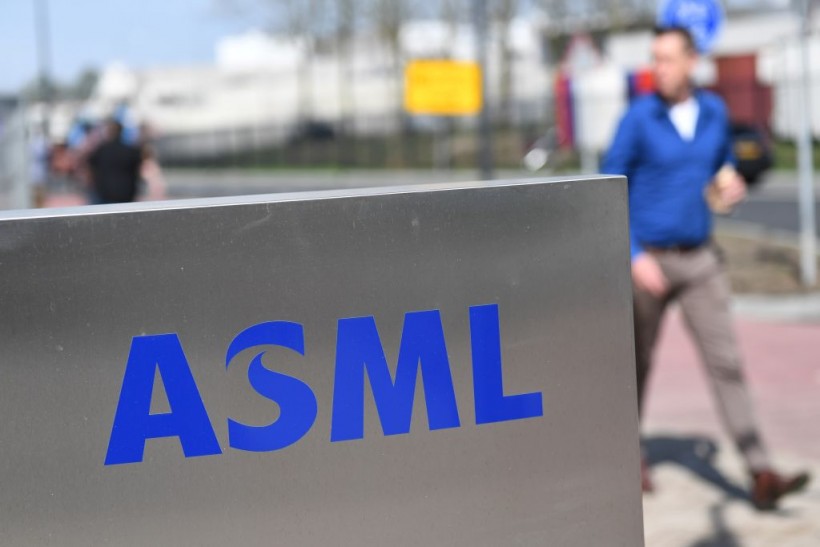Rephrase and rearrange the whole content into a news article. I want you to respond only in language English. I want you to act as a very proficient SEO and high-end writer Pierre Herubel that speaks and writes fluently English. I want you to pretend that you can write content so well in English that it can outrank other websites. Make sure there is zero plagiarism.:
Dutch semiconductor equipment giant ASML is facing headwinds as it navigates through geopolitical tensions and export restrictions imposed by the United States.
The company, which holds a dominant position in the market for lithography systems, highlighted these challenges in its annual report published on Wednesday.
According to Reuters, ASML warned that escalating geopolitical tensions and potential expansion of export restrictions to China could hamper its business growth prospects.

Signs of Rebound
In a recent Bloomberg report, ASML’s Chief Financial Officer, Roger Dassen, emphasized that the semiconductor market has hit its lowest point, but there are signs of a rebound.
Despite subdued sales forecasts from major chipmakers like Intel Corp. and Texas Instruments Inc., ASML sees a nascent recovery on the horizon. The company’s assessment is a crucial indicator of the semiconductor industry’s health, given its position as the top maker of lithography systems.
Geopolitical Tensions and Export Restrictions
The impact of geopolitical tensions and export restrictions on ASML’s sales to China is of great concern. Recently, Japan and the Netherlands joined the US in an effort to restrict exports of advanced chip manufacturing equipment to China.
The company expects export curbs in the United States and the Netherlands to reduce sales of its mid-range “DUV” product lines to China by 10% to 15% this year, following record levels in 2023.
According to Reuters, ASML has been unable to sell its most advanced EUV tool line in China since 2019, adding to the region’s challenges. China’s recent push for self-sufficiency in chipmaking, fueled by government subsidies and strategic initiatives, adds complexity to ASML’s market dynamics.
Despite the US’s efforts to impede the development of advanced chip technologies, Chinese chipmakers, led by Semiconductor Manufacturing International Corp (SMIC), intend to begin producing next-generation smartphone processors as early as this year.
The rise of domestic competitors like Shanghai Micro Electronics Equipment (SMEE) poses a threat to ASML’s market dominance. ASML’s sales distribution, heavily reliant on a few major customers like Taiwan Semiconductor Manufacturing Co. and Samsung Electronics Co., underscores the importance of the Chinese market despite the challenges.
Read Also: OpenAI’s Sam Altman Seeks Trillions to Reshape Semiconductor Industry, Boost AI Development
Plans for the Future
Despite these obstacles, ASML remains optimistic about its long-term prospects. Dassen highlighted the company’s strategic positioning in key technological trends such as artificial intelligence, electrification, and the energy transition. These trends are expected to drive future demand for ASML’s products, mitigating some of the short-term challenges.
Innovation remains a cornerstone of ASML’s strategy to stay ahead in the competitive landscape. The company recently unveiled its latest chipmaking machine, boasting advanced features and capabilities. With record orders for its top-of-the-line EUV machines, ASML is poised to capitalize on the industry’s recovery and the anticipated opening of new fabs globally.
Stay posted here at Tech Times.
Related Article: Vietnam Offers Lucrative Tax Breaks to Semiconductor Firms Amid China-US Chip Conflict

ⓒ 2024 TECHTIMES.com All rights reserved. Do not reproduce without permission.



